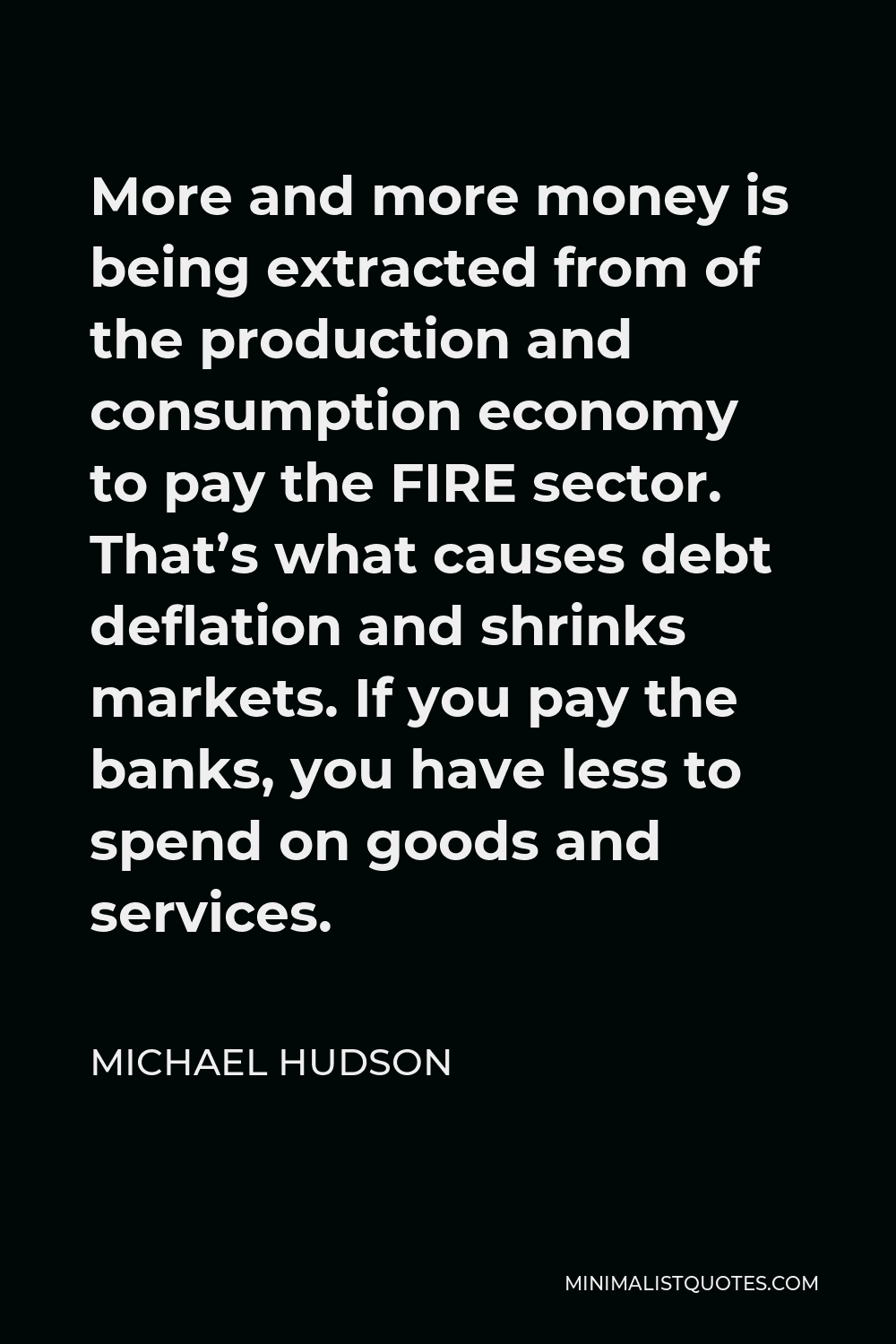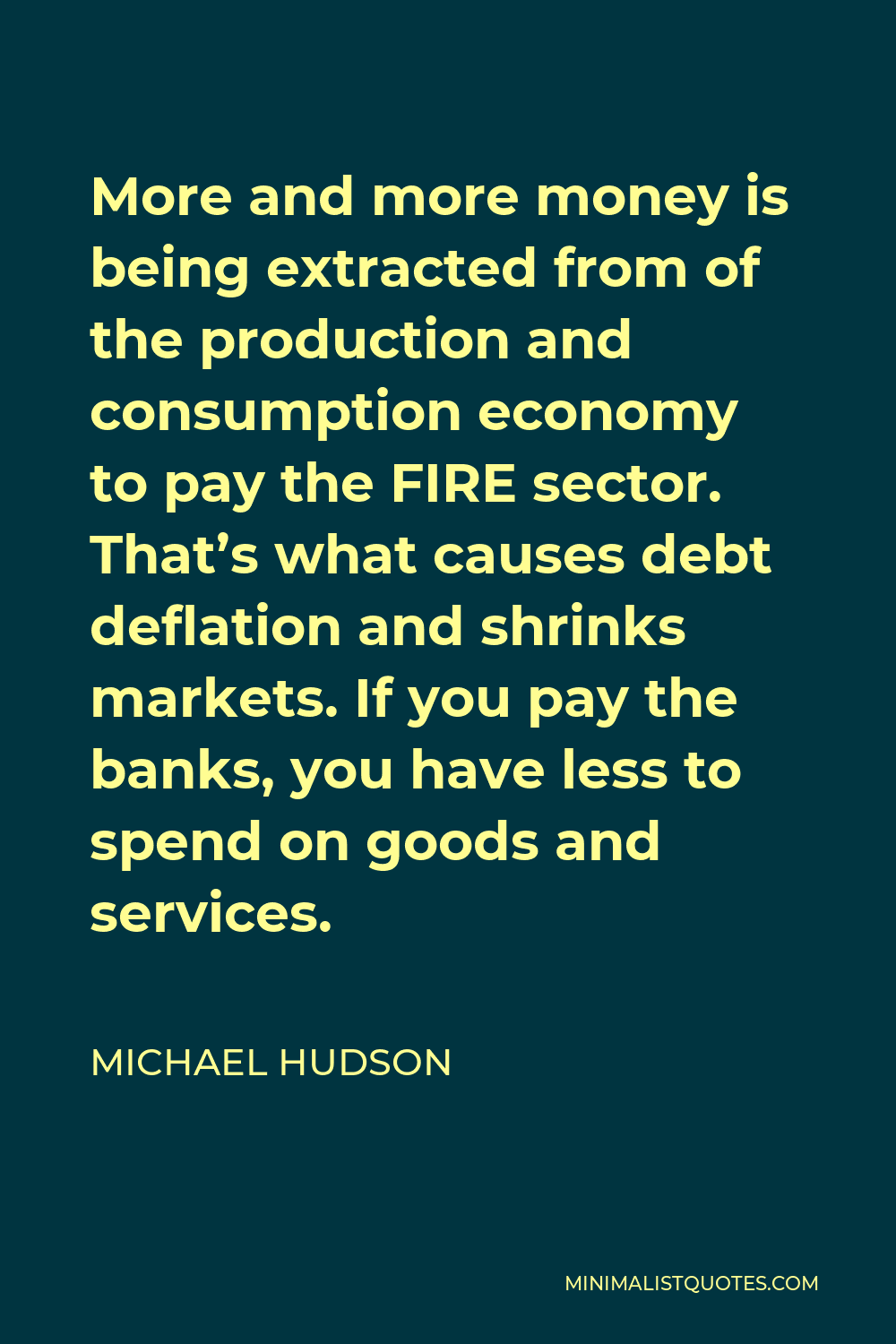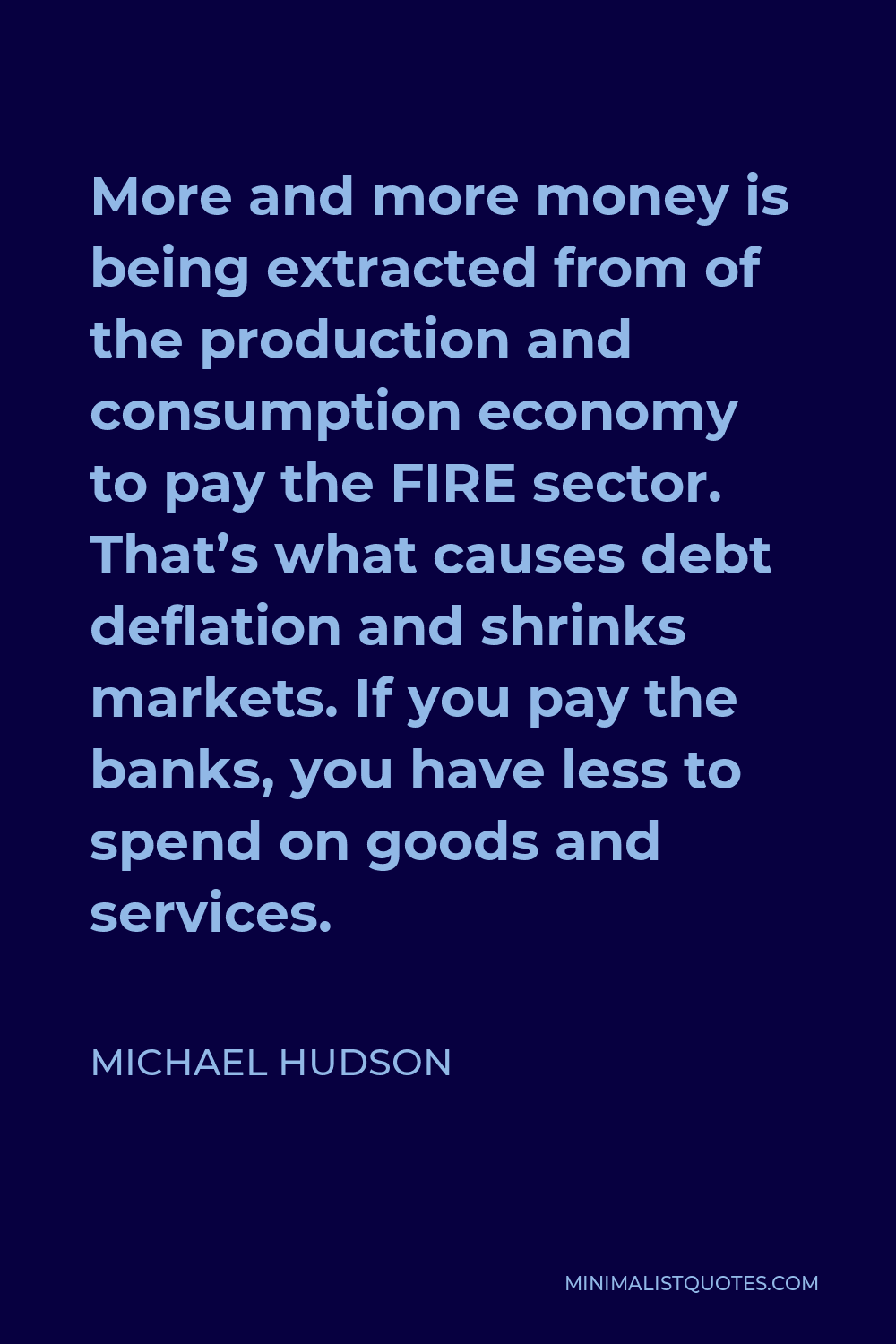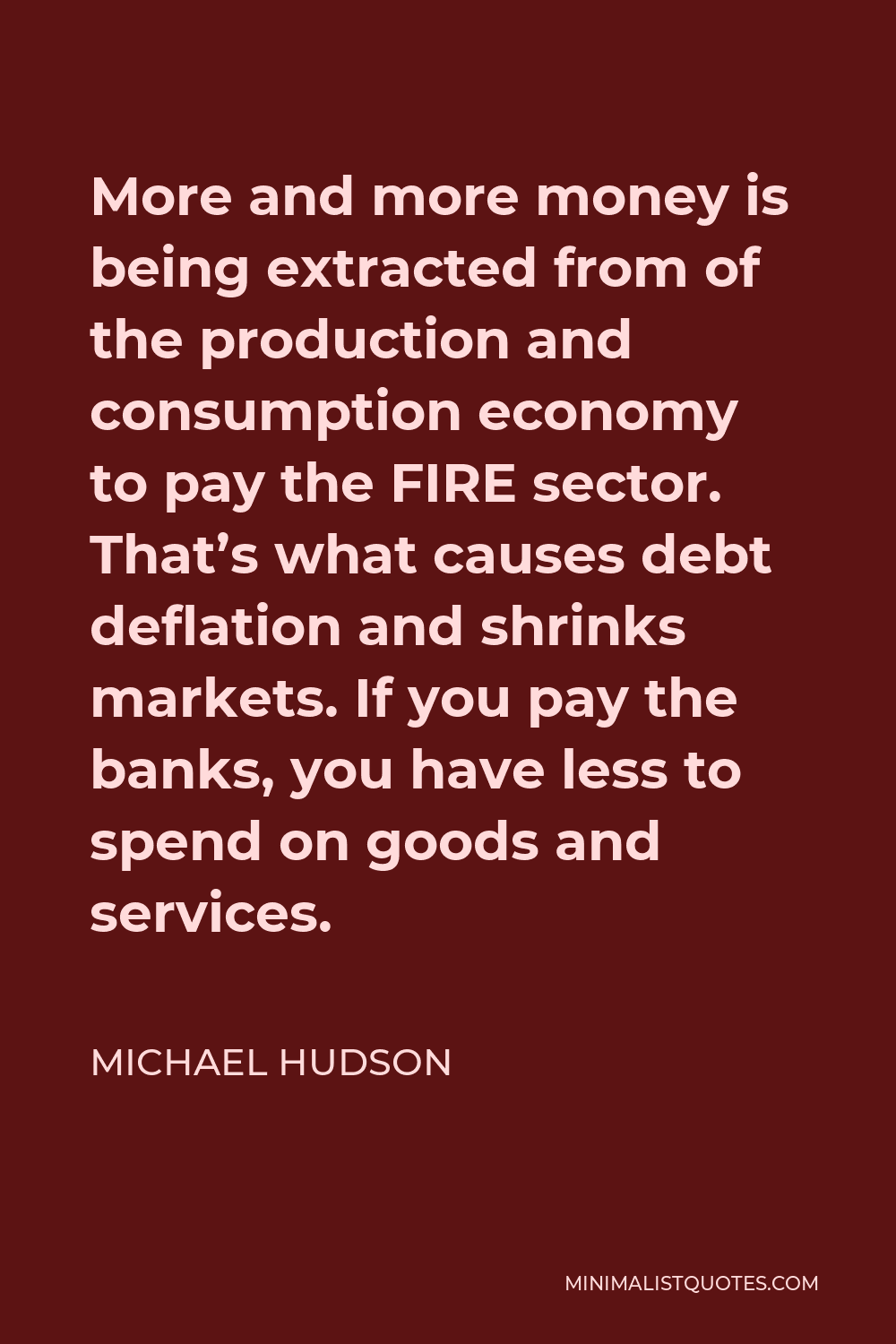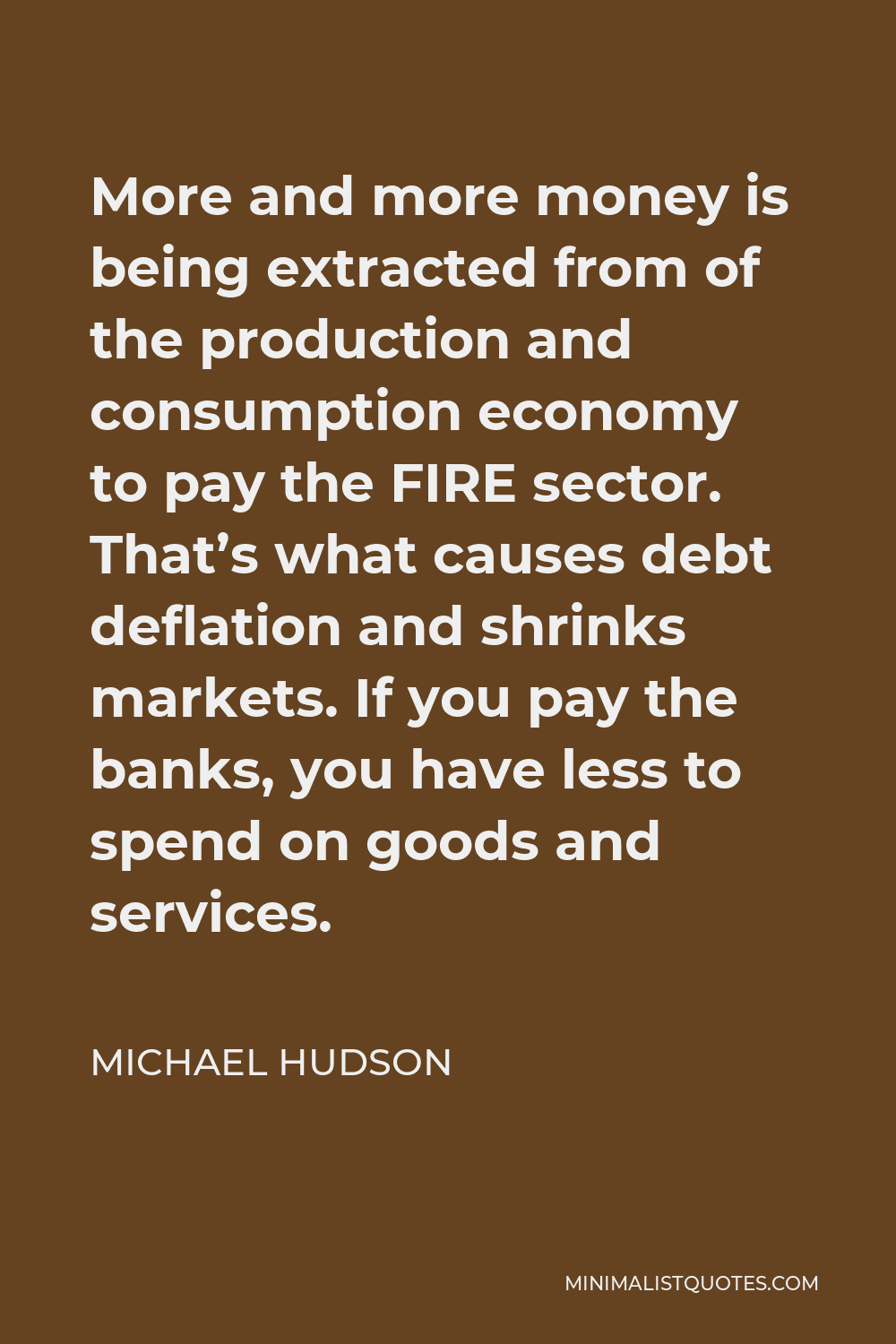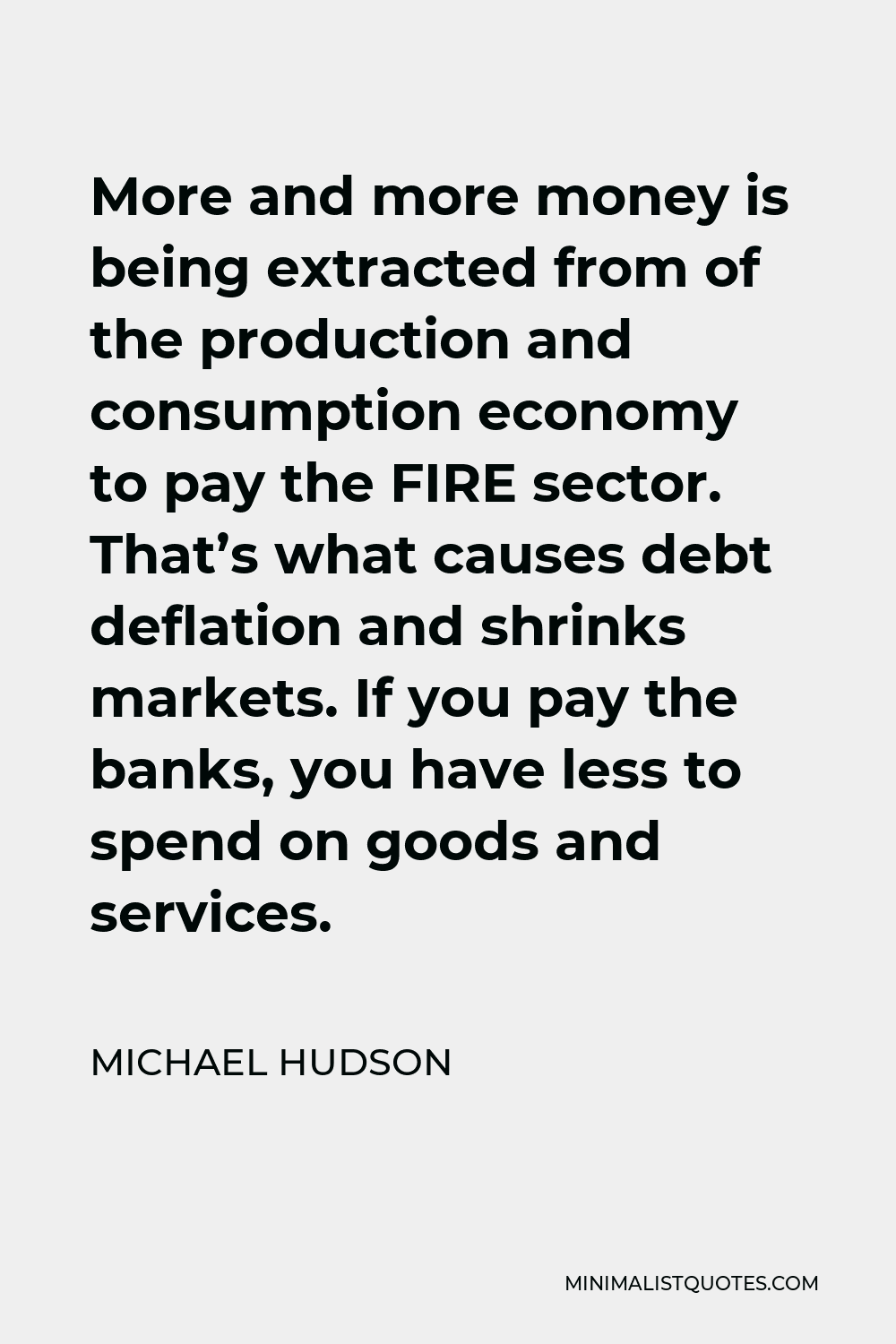The aim of promoting low down payments is to push prices back up so that fewer houses are going to be in negative equity and fewer people are going to walk away from the mortgages. That will save the from taking a loss on their junk mortgage loans.
MICHAEL HUDSONMore and more money is being extracted from of the production and consumption economy to pay the FIRE sector. That’s what causes debt deflation and shrinks markets. If you pay the banks, you have less to spend on goods and services.
More Michael Hudson Quotes
-






-





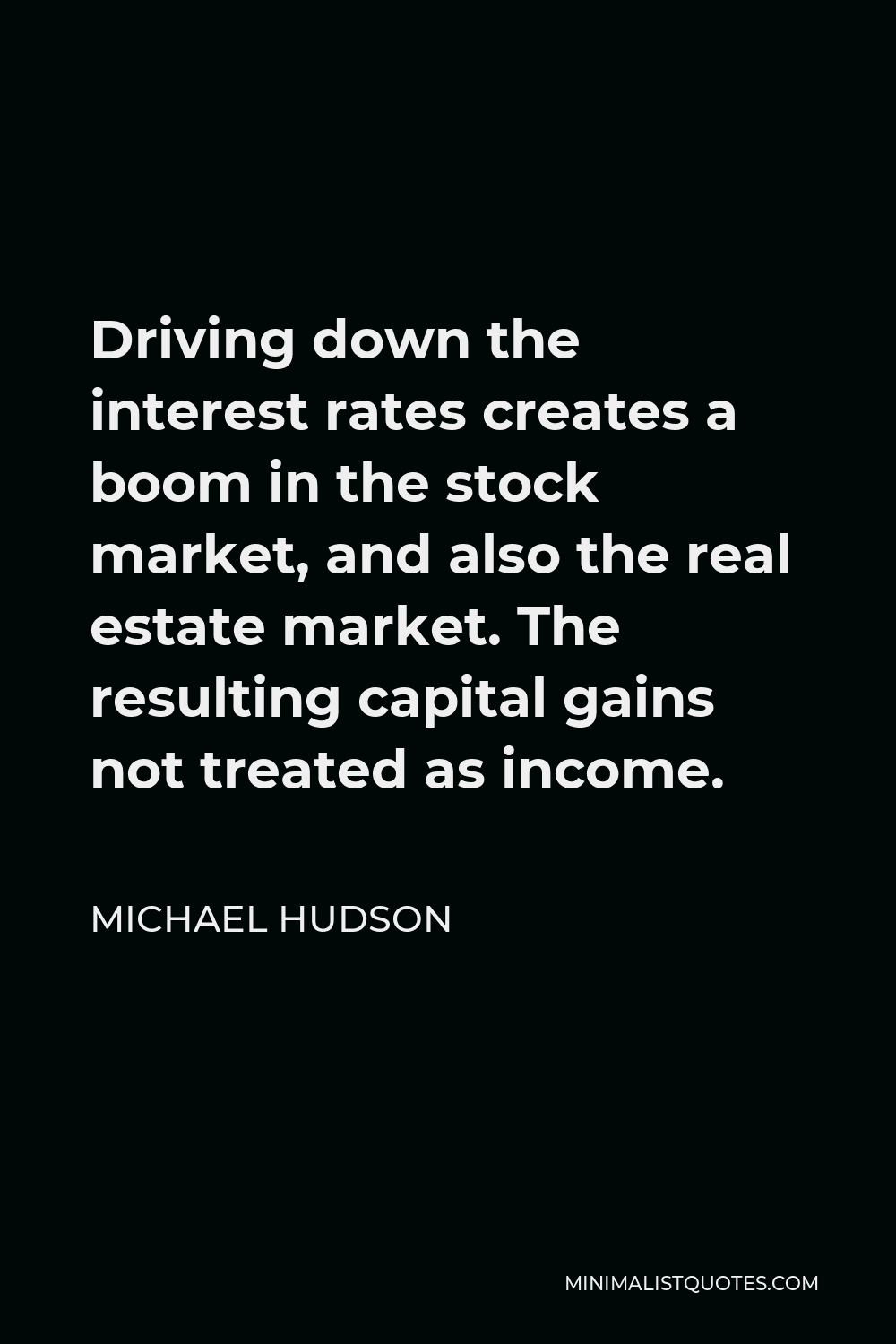
Driving down the interest rates creates a boom in the stock market, and also the real estate market. The resulting capital gains not treated as income.
MICHAEL HUDSON -





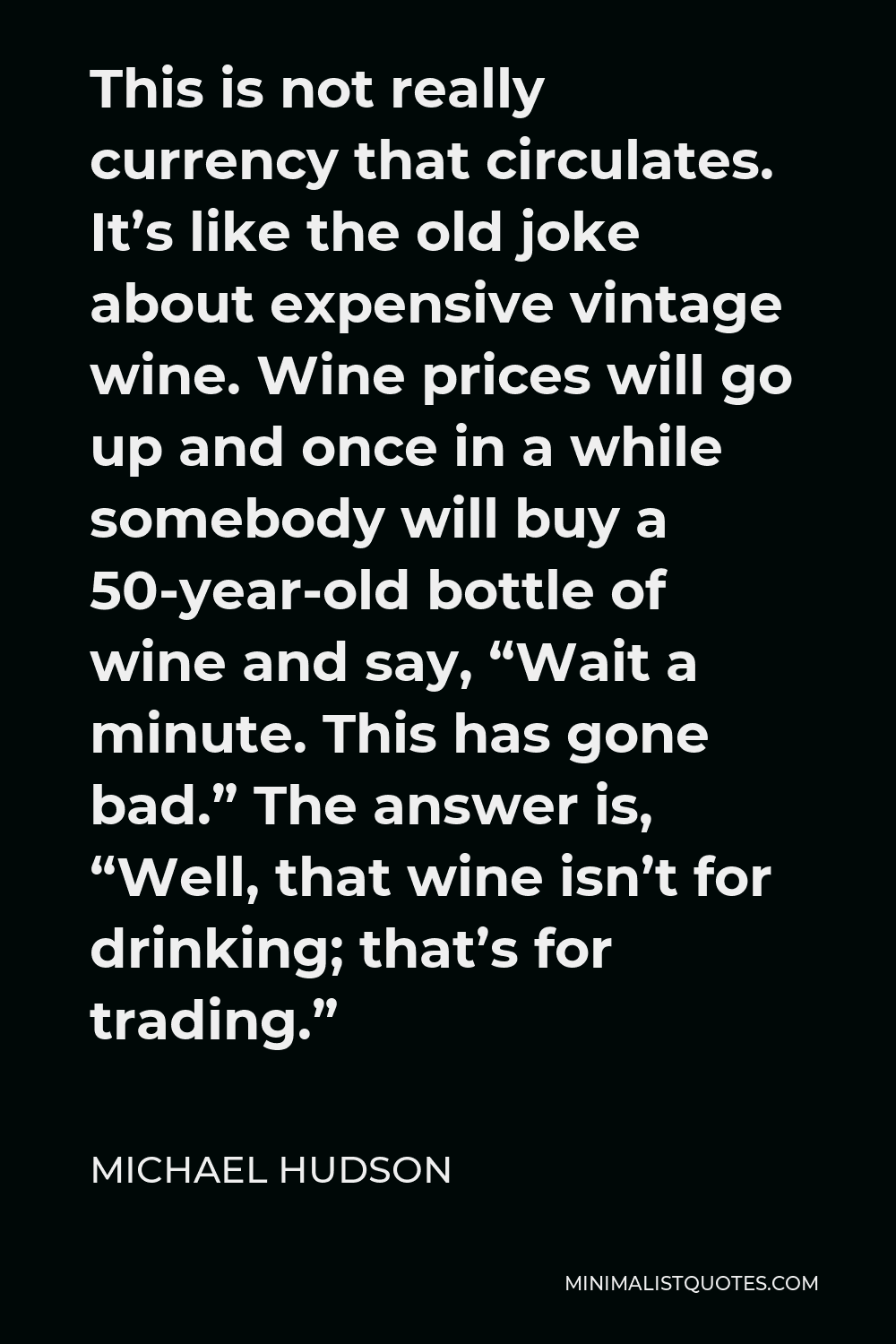
This is not really currency that circulates. It’s like the old joke about expensive vintage wine. Wine prices will go up and once in a while somebody will buy a 50-year-old bottle of wine and say, “Wait a minute. This has gone bad.” The answer is, “Well, that wine isn’t for drinking; that’s for trading.”
MICHAEL HUDSON -






When you say “paying the banks,” what they really mean is paying the bank bondholders. They are basically the One Percent.
MICHAEL HUDSON -





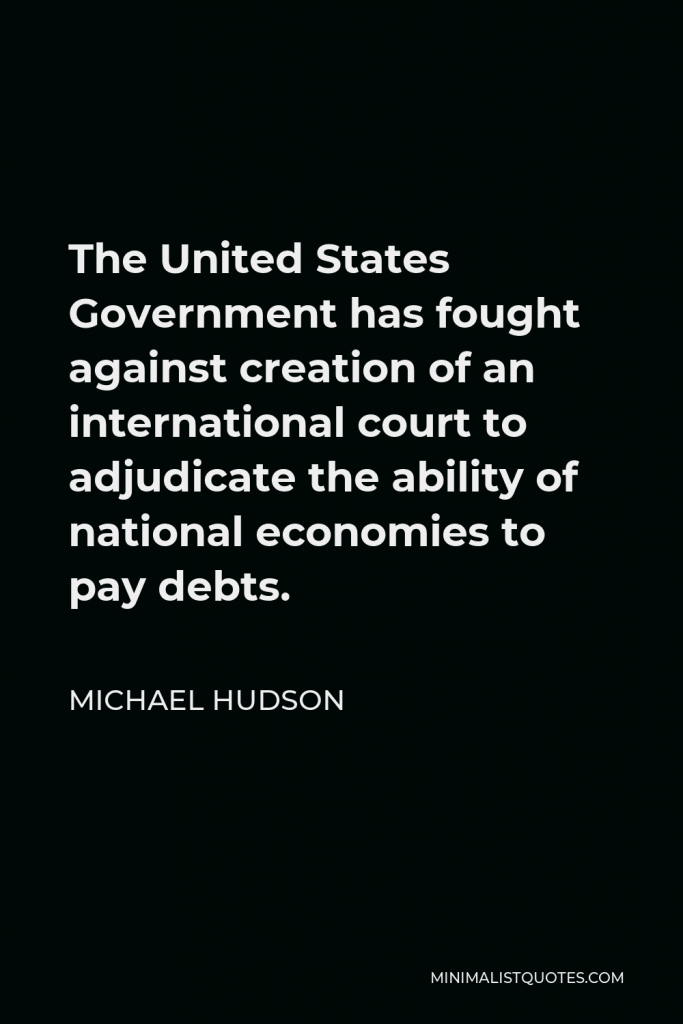

The United States Government has fought against creation of an international court to adjudicate the ability of national economies to pay debts.
MICHAEL HUDSON -






If you have to pay about forty to forty-three percent of your income for housing, you also have to pay fifteen percent of your paycheck for the FICA for Social Security wage withholding.
MICHAEL HUDSON -





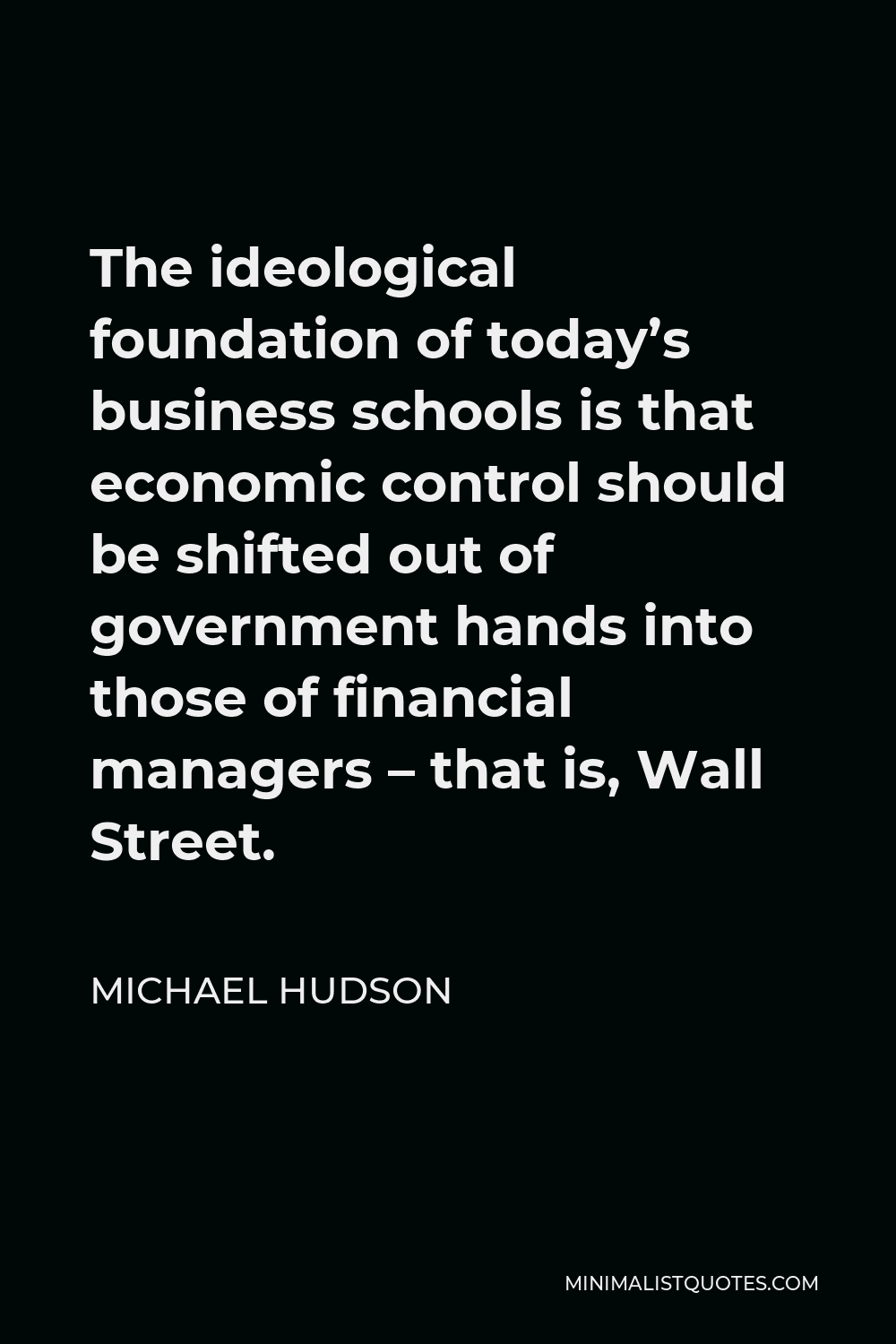
The ideological foundation of today’s business schools is that economic control should be shifted out of government hands into those of financial managers – that is, Wall Street.
MICHAEL HUDSON -





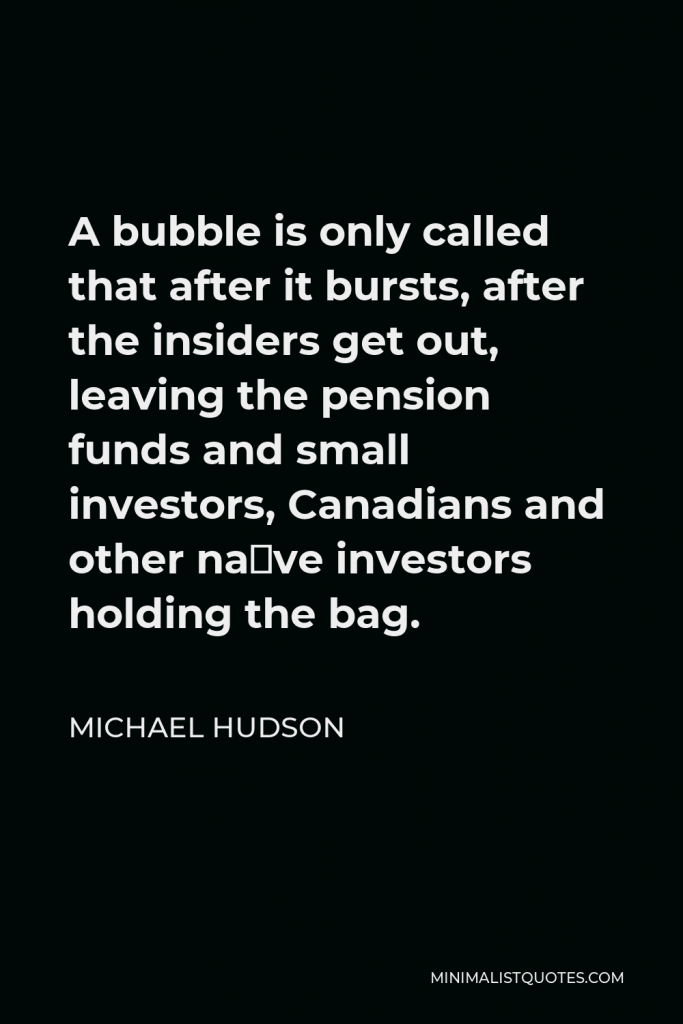

A bubble is only called that after it bursts, after the insiders get out, leaving the pension funds and small investors, Canadians and other naïve investors holding the bag.
MICHAEL HUDSON -





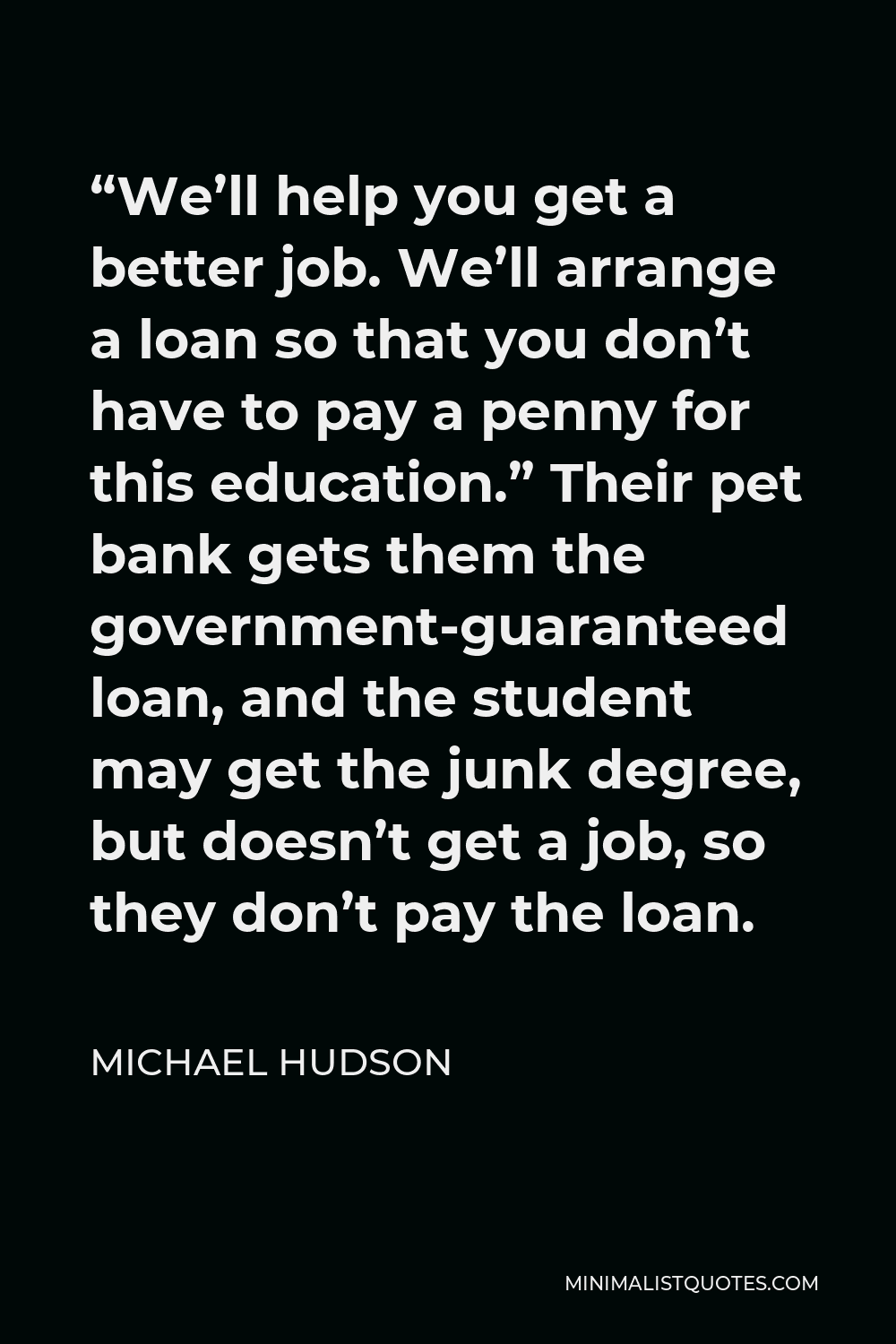
“We’ll help you get a better job. We’ll arrange a loan so that you don’t have to pay a penny for this education.” Their pet bank gets them the government-guaranteed loan, and the student may get the junk degree, but doesn’t get a job, so they don’t pay the loan.
MICHAEL HUDSON -





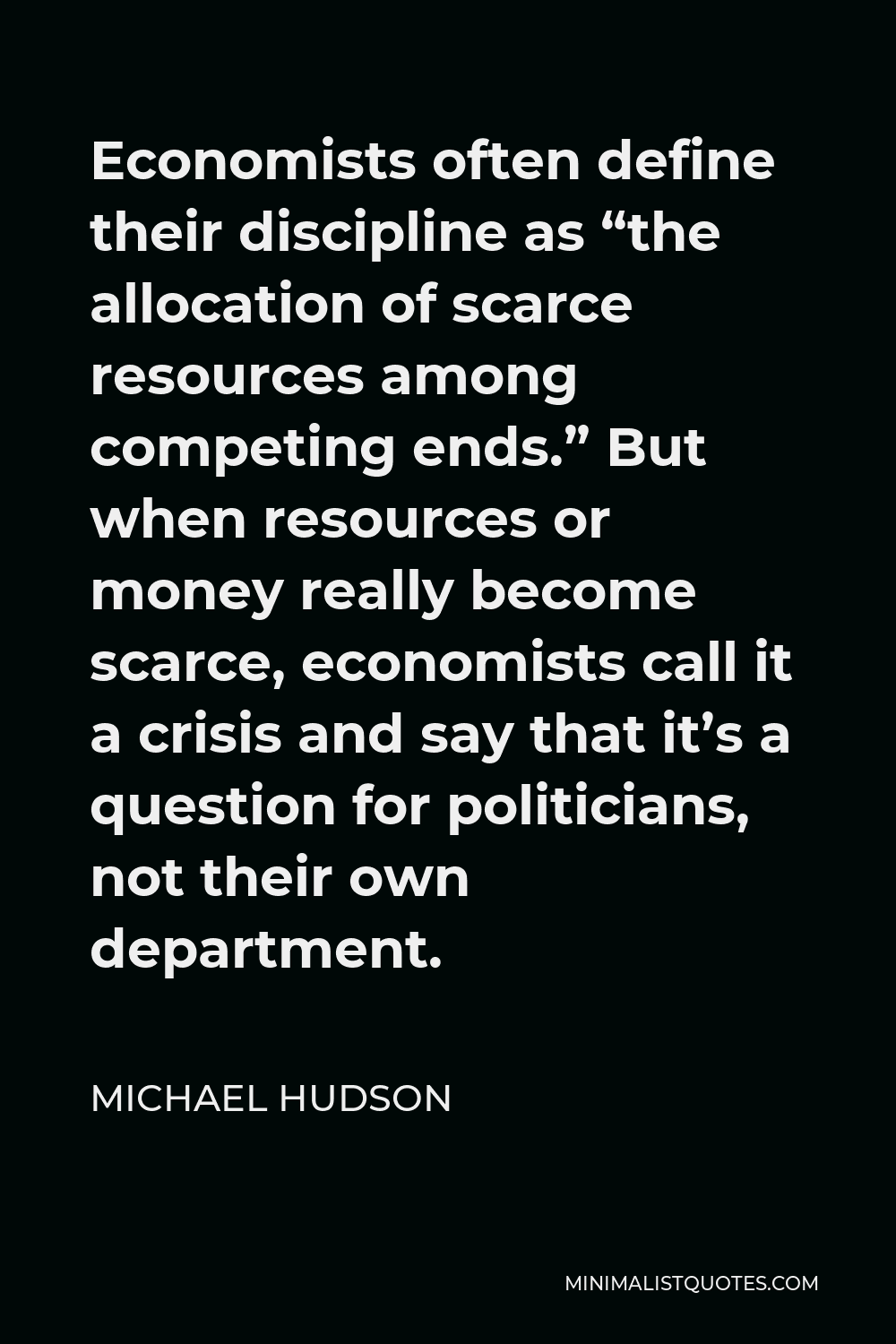
Economists often define their discipline as “the allocation of scarce resources among competing ends.” But when resources or money really become scarce, economists call it a crisis and say that it’s a question for politicians, not their own department.
MICHAEL HUDSON -





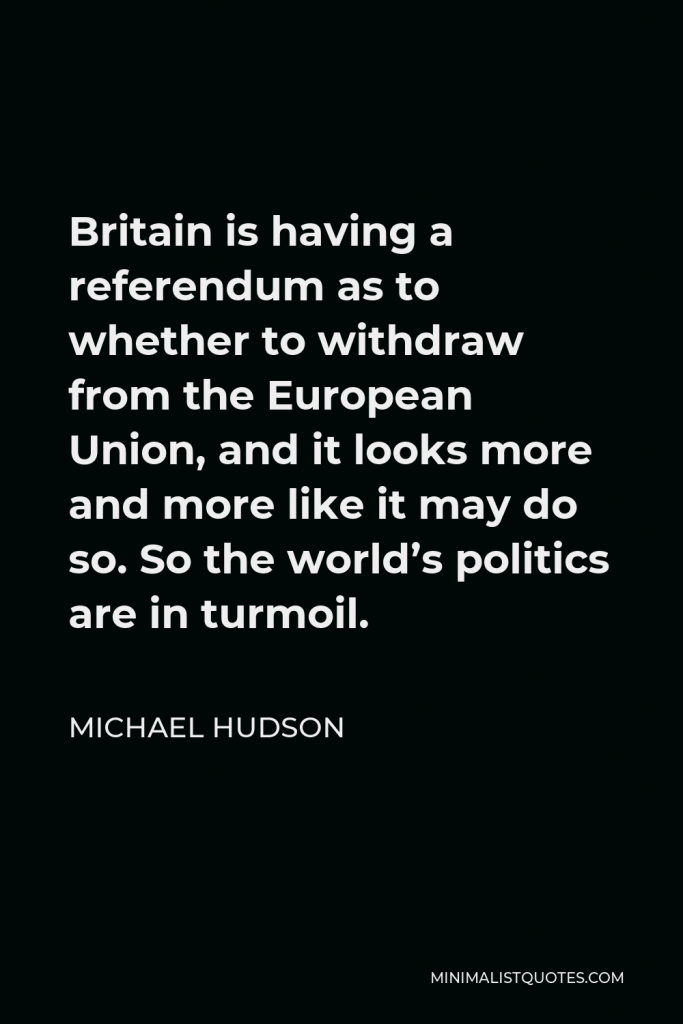

Britain is having a referendum as to whether to withdraw from the European Union, and it looks more and more like it may do so. So the world’s politics are in turmoil.
MICHAEL HUDSON -





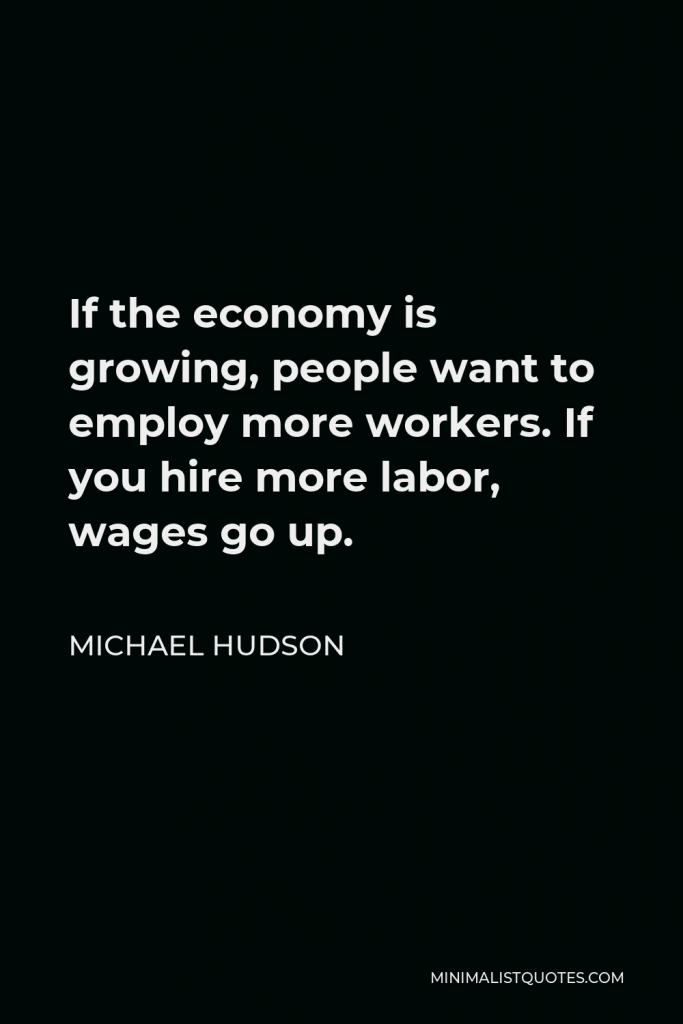

If the economy is growing, people want to employ more workers. If you hire more labor, wages go up.
MICHAEL HUDSON -






Much higher cost for all the infrastructure that he’s proposing. You could call Trump’s plan “public investment to create private profit”. That’s really his plan in a summary.
MICHAEL HUDSON -







I guess the main thing that came out of the Panama Papers was that Ukrainian President Poroshenko had promised to divest of his chocolate company and instead, he simply moved it into an offshore account.
MICHAEL HUDSON -





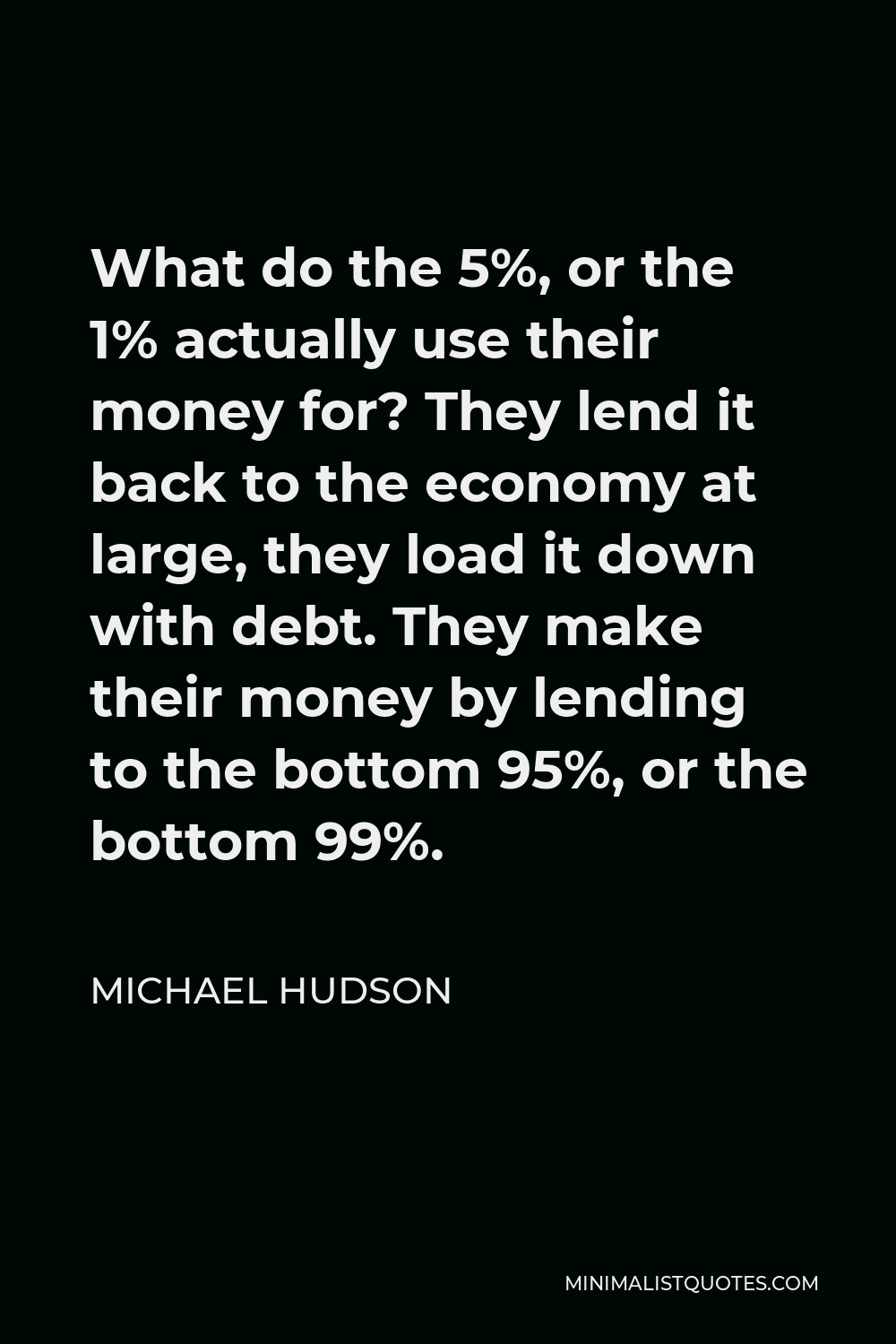
What do the 5%, or the 1% actually use their money for? They lend it back to the economy at large, they load it down with debt. They make their money by lending to the bottom 95%, or the bottom 99%.
MICHAEL HUDSON -






I don’t think that governments should permit speculation in raw materials, because they’re what the economy basically needs.
MICHAEL HUDSON
